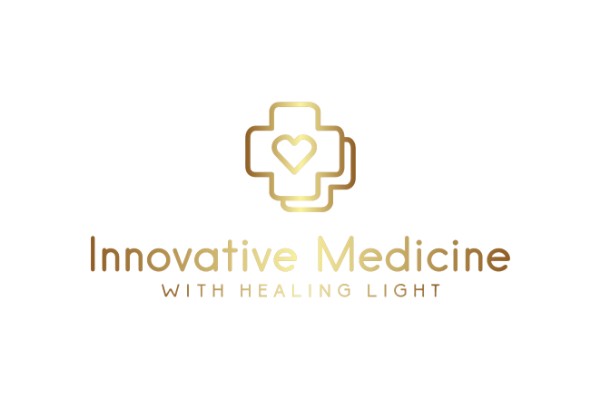There is a lot of confusion around addiction and why it happens. People often ask are addictions genetic in nature, or are they choices people make? A good understanding of addiction and how it is caused is essential for two reasons. Firstly, it opens up new options for treatment for those suffering from addiction, and this can hopefully free them from addiction. Secondly, understanding addiction helps reduce the stigma associated with it. When we understand why addiction happens and how it is not something that can be controlled, then we can start to accept it as part of the human experience and stop judging those who are suffering. One of the issues that arise again and again is that of genetics. Is addiction a choice? Is it something that can be inherited from being exposed to addictive behavior in others, for example, during childhood? Or are addictions genetic? And if so, how can we possibly fight it?
Are Addictions Genetic? The Simple Answer
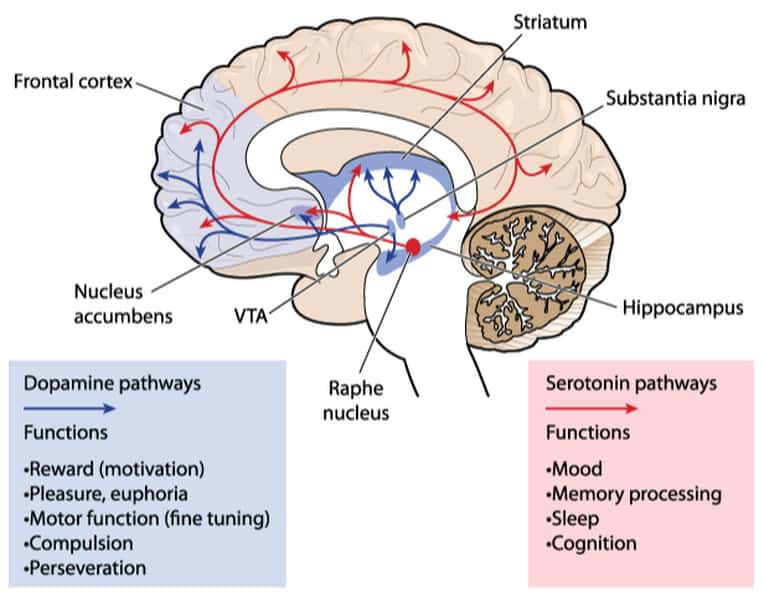
In short, yes, addiction is often a genetic issue. Experts believe that addiction is about 50% due to having a genetic predisposition. The other 50% comes down to a complex mixture of other issues, such as life experiences and the coping skills a person has to manage these. A family history of addiction is evident all around us. If a child has a parent who is an addict, they are around eight times more likely to develop an addiction.
It is really important we point out that it is not the addiction itself that is inherited. Someone who is addicted to alcohol is not addicted because there is something in their genetic makeup that makes them crave alcohol itself. Instead, the genetic predisposition is for a person to seek out the hit of dopamine that comes from indulging in an addictive substance or behavior. Essentially, we are all addicted to dopamine. It is the chemical the brain releases to reward us. It feels good, and so we crave it. However, some people have a genetically predisposed to find it harder to control their impulses. They are willing to take risks with their well-being to enjoy the reward of dopamine. They seek higher and higher rewards, requiring more and more of the substance or behavior that makes them feel good. This is a genetic characteristic.
Addiction is A Complex Issue
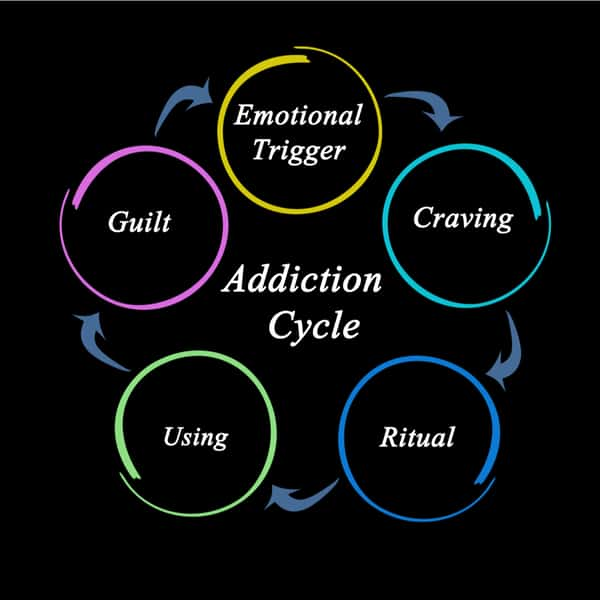
Truthfully, we all have the potential to become addicted. We all experience the reward of dopamine in the brain. People can be addiction-free for most of their lives, and then a trauma or life experience drives them to rely on something external, such as drugs or gambling, to get a sense of well-being. Some people gradually become addicted to a substance; repeatedly consuming it rewires the brain. For example, over time, it takes more alcohol to get that feel-good buzz. Repeatedly experiencing this feel-good buzz makes the association between the substance (alcohol) and the feeling (the buzz) stronger. In this way, even those who dont necessarily have a strong genetic predisposition to addiction can find themselves struggling with addictive behavior.
Are Addictions Genetic and Therefore Unavoidable?

Just because someone is genetically predisposed to becoming addicted does not mean that they will inevitably become addicted. Only 50% of the addiction is rooted in genetic predisposition. That leaves 50% that comes down to how a person manages the coping skills they have. So, we do have power. Addiction is not inevitable, even if you have a parent, two parents, or a whole family who has suffered from addiction. The coping skills we develop to help us deal with the more challenging parts of life are extremely important. Just as a person with no genetic predisposition to addiction can become addicted, a person with a genetic predisposition to addiction can avoid addiction. Remember that addiction has a stigma attached. It isnt something people find easy to talk about. This was even more true just a generation back. The generation before you often found addiction shameful and stigmatized it because they didnt understand the complex causes involved. By not talking about addiction, previous generations may have hidden the problem, and not only does this cause huge amounts of buried trauma. It also means that there was no opportunity to pass on coping skills that would help the next generation deal with life without resorting to addictive substances and behaviors.
Are Addictions A Genetic Disease?
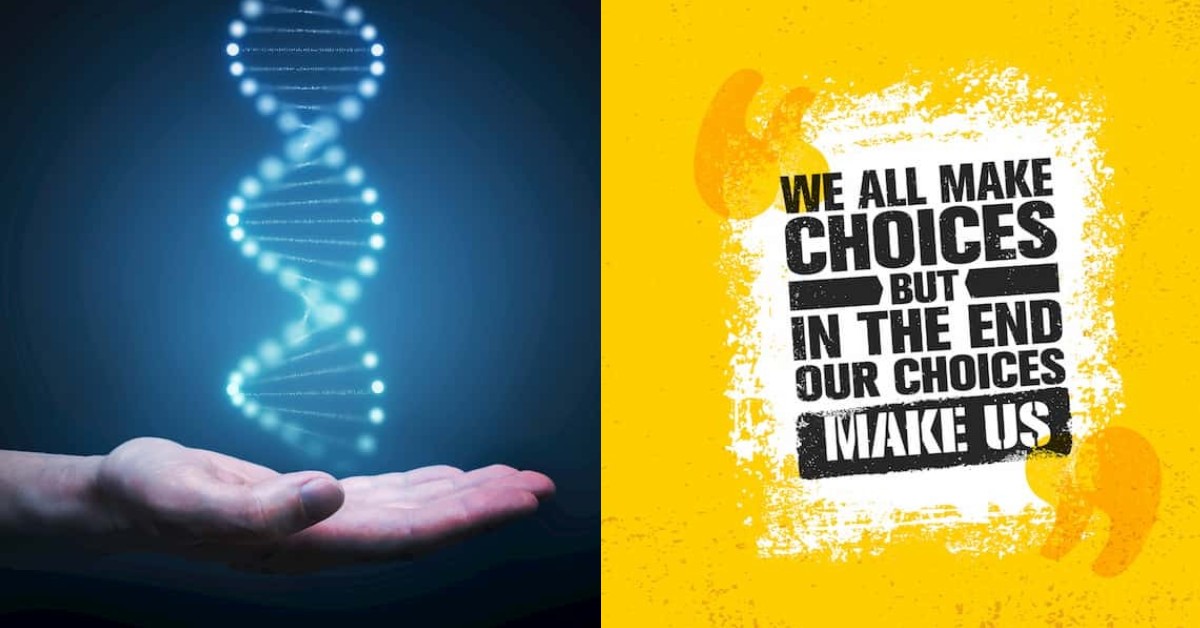
You will always have people who will resist the idea that addiction is a disease. But think about it. Most serious diseases that people suffer from have an element of genetic predisposition and an element of lifestyle choice. People might be more likely to suffer from diabetes because of their family history, but they will further increase the chance of contracting the disease if they have an unhealthy diet. It is the same for most of the major diseases. Addiction is also like this; there is an element of genetic predisposition and an element of lifestyle choice. Just like those diseases, addiction can happen to anyone. Stereotypical ideas about people with addictions being from specific socio-economic backgrounds just dont ring true; many wealthy, famous, and successful people suffer from addictions. Addiction is not a weakness nor is it a choice. It is a disease, and it should be treated as a disease and not stigmatized.
Addiction Treatment
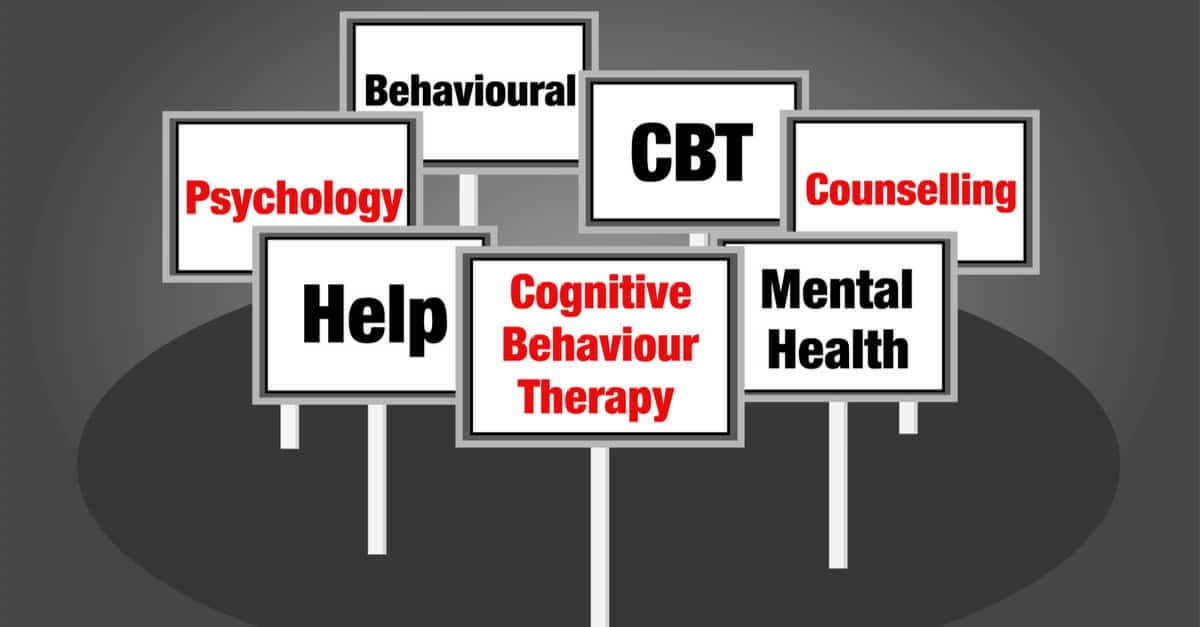
If you have asked yourself, are addictions genetic, or are they simply a choice, then perhaps you are considering searching for help for yourself or someone you care about. The key to seeking help is in admitting the problem to yourself and to others. Talking therapy such as Cognitive Behavior Therapy can be a great starting place, but sometimes you need more help; after all, there are chemical factors to consider. An addiction specialist or a doctor can help you find the right help for your needs.
